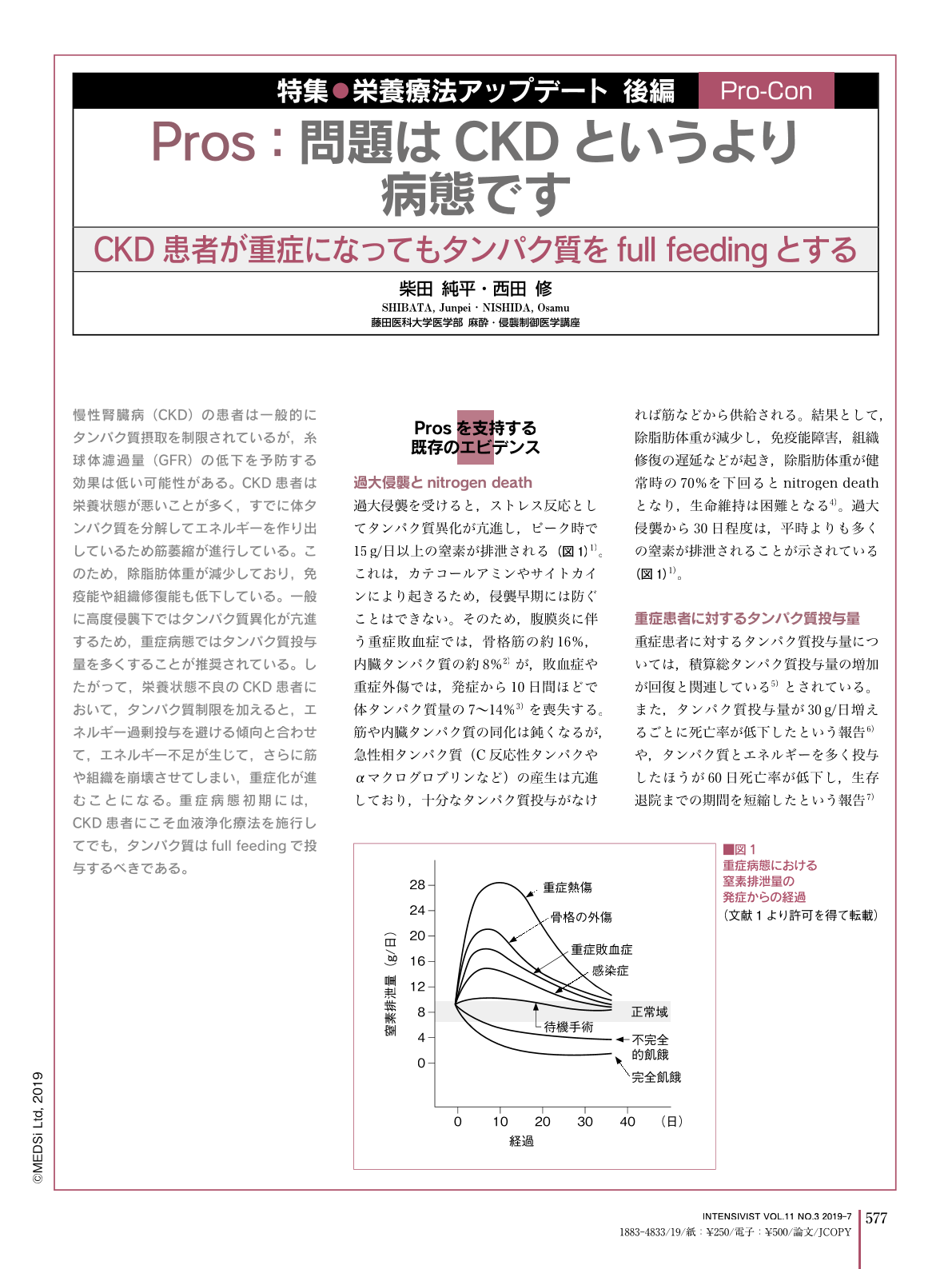Japanese
English
- 有料閲覧
- Abstract 文献概要
- 1ページ目 Look Inside
- 参考文献 Reference
慢性腎臓病(CKD)の患者は一般的にタンパク質摂取を制限されているが,糸球体濾過量(GFR)の低下を予防する効果は低い可能性がある。CKD患者は栄養状態が悪いことが多く,すでに体タンパク質を分解してエネルギーを作り出しているため筋萎縮が進行している。このため,除脂肪体重が減少しており,免疫能や組織修復能も低下している。一般に高度侵襲下ではタンパク質異化が亢進するため,重症病態ではタンパク質投与量を多くすることが推奨されている。したがって,栄養状態不良のCKD患者において,タンパク質制限を加えると,エネルギー過剰投与を避ける傾向と合わせて,エネルギー不足が生じて,さらに筋や組織を崩壊させてしまい,重症化が進むことになる。重症病態初期には,CKD患者にこそ血液浄化療法を施行してでも,タンパク質はfull feedingで投与するべきである。
The amount of protein administered to patients with CKD is generally restricted, but the effect to prevent lowering of the GFR may be insufficient. Patients with CKD often have poor nutritional status, and muscle atrophy progresses since existing protein stores are metabolized to produce energy over a long period of time. As a result, lean body mass decreases, and immunocompetence and the ability to repair tissue decrease. In general, protein catabolism is accelerated at times of metabolic stress, so it is recommended to increase the protein dose in patients with critical illness. If protein restriction with the tendency to avoid calorie overdose is conducted in patients with CKD and poor nutritional status, there will be a deficiency of available energy, leading to further muscle and tissue collapse. The severity of atrophy and immunocompromise will progress. In the early stage of critical illness, patients with CKD should be given their full protein requirement even if dialysis is performed.

Copyright © 2019, MEDICAL SCIENCES INTERNATIONAL, LTD. All rights reserved.


